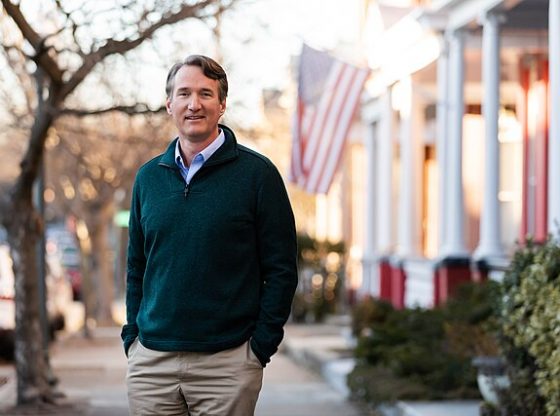Republican Virginia Gov. Glenn Youngkin and the state’s colleges and universities are in the midst of a fight over whether diversity, equity and inclusion (DEI) initiatives should be supported with tax-payer funding.
The Youngkin administration in recent months has been in contact with the state’s universities, like George Mason University and Virginia Commonwealth University, over key curriculum requirements that could be forcing left-wing DEI initiatives on students as well as about the bloat in funding for DEI-focused positions at the schools, the administration told the Daily Caller News Foundation. Virginia colleges have continued to fund DEI positions and initiatives, despite Republican Gov. Glenn Youngkin’s efforts to stop the practice, with a report from the Heritage Foundation released in September finding that Virginia public universities on average have the largest DEI bureaucracies out of any other state.
One of the Youngkin administration’s key recent moves in the fight is over the curriculum at GMU, requesting earlier this year the syllabi for courses that are expected to fill the schools’ new Just Societies core curriculum requirement over concern that it was making classes forcing left-wing ideas mandatory for students, according to The Virginian-Pilot. The administration also requested syllabi for Virginia Commonwealth University’s racial literacy requirement.
The Youngkin administration also sent a letter to the Council of Presidents in March addressing the need to review overhead costs at universities, including for rising DEI administrative offices, an official from the administration told the DCNF. The governor later that month met with the Council of Presidents to discuss many topics, including the expansion of non-classroom costs, particularly for DEI at Virginia schools.
In contrast to Virginia, Republican Texas Gov. Greg Abbot signed a bill in June 2023 that banned state-funded universities from operating DEI offices and funding initiatives, and Florida Gov. Ron DeSantis signed a law outlawing the usage of DEI at state-funded universities in May 2023. Republican lawmakers have introduced or passed bills in 30 states seeking in some way to restrict DEI in colleges, industries or the government, according to NBC News.
DEI administrators continue to receive hefty salaries at Virginia colleges and universities, with the University of Virginia paying Senior Associate Dean and Global Chief Diversity Officer Martin Davidson $451,800 in 2023, according to data from OpenTheBooks. UVA employs 235 employees in positions associated with DEI, leading to an estimated cumulative cost of $20 million per year, including benefits.
“At a time when we’re seeing so much division on college campuses, with alarming increases in antisemitism and religious bigotry, Governor Youngkin will continue to call on the Presidents of our colleges and universities and Boards of Visitors to lead in combating hate, keeping our students safe, and in transparency on what is required and not required for students to graduate,” Youngkin’s press secretary Christian Martinez told the DCNF. “Our shared focus should be on equipping every student with the career-ready skills they need to succeed when they graduate, this is what Boards of Visitors and school leadership owe all students and parents.”
Greater changes could be made at UVA in the coming months, with an official from the Youngkin administration telling the DCNF that appointments from the governor will be taking control of the school’s Board of Visitors in the coming months.
Virginia public universities have a cumulative average of 6.5 DEI personnel per 100 faculty members, with California schools having an average of 4.5, according to the Heritage Foundation’s report. GMU had the most DEI personnel out of any school, with 7.4 per 100 tenure-track faculty.
“DEI bureaucracies are better understood as an academic version of a political commissariat that articulates and enforces an ideological orthodoxy on campus,” Mike Gonzalez and Jay Greene, writers of the Heritage Foundation’s report, said in the release. “That orthodoxy tends to make many groups of people feel unwelcome, promotes division, and encourages conformity rather than diversity on various social and political issues.”
GMU President Gregory Washington blasted the Heritage Foundation’s report in a letter in September, saying that GMU had become an “irresistible target for ideologues” and pointing to its range of ideological diversity through its Antonin Scalia Law School and Jimmy and Rosalynn Carter School for Peace and Conflict Resolution. Washington also criticized the methodology of the report, disputing the method that determined what was considered DEI staff.
“George Mason University is proudly Virginia’s largest, most inclusive, and most innovative university, a national leader in recruiting, welcoming, educating, and graduating everyone who wants a college degree to change their lives,” Washington said in the letter. “In Virginia, we accomplish this at a lower cost per student than any of our peers. We also accomplish it while maintaining race-neutral and test-optional admissions, and a NEAR 90% acceptance rate. We welcome everyone who is academically prepared for the rigors of a research university curriculum. Period.”
Virginia’s Board of Visitors is expected to consider a report being drafted by two of the board’s members in early May, where a determination will be made about allowing the Just Societies mandate, a member of the Youngkin administration told the DCNF.
Republicans in Virginia are facing resistance in addressing DEI in schools due to the party makeup of the government, with Democrats controlling both chambers of the state Legislature. The offices of the governor, secretary of state and attorney general are all held by Republicans.
The Youngkin administration has taken a number of other steps to combat DEI in Virginia schools, including issuing an executive order on the governor’s first day in office in 2022 to end the use of “inherently divisive concepts” in K–12 public education, such as critical race theory. A few days later, the administration also issued an executive order expanding the scope of the state’s chief diversity, opportunity and inclusion officer to oversee viewpoint diversity, among other considerations.
A Supreme Court ruling in June 2023 complicated the use of race considerations at both public and private colleges and universities, ruling to end the widespread practice of considering race in admissions. Many schools have also been walking back test-optional policies that were put in place to admit students from wider backgrounds, such as Cornell and Harvard, after those who did not submit scores had worse outcomes.
A key part of Youngkin’s campaign in 2021 was centered around giving parents more control of their local curriculum amidst concerns that left-wing ideologies were being injected into schools. Youngkin’s competitor in the governor’s race, Terry McAuliffe, took the stance at a debate that parents should not have authority over what schools teach their children.
GMU, Virginia Tech, Virginia Common Wealth University and UVA did not respond to a request to comment from the DCNF.












